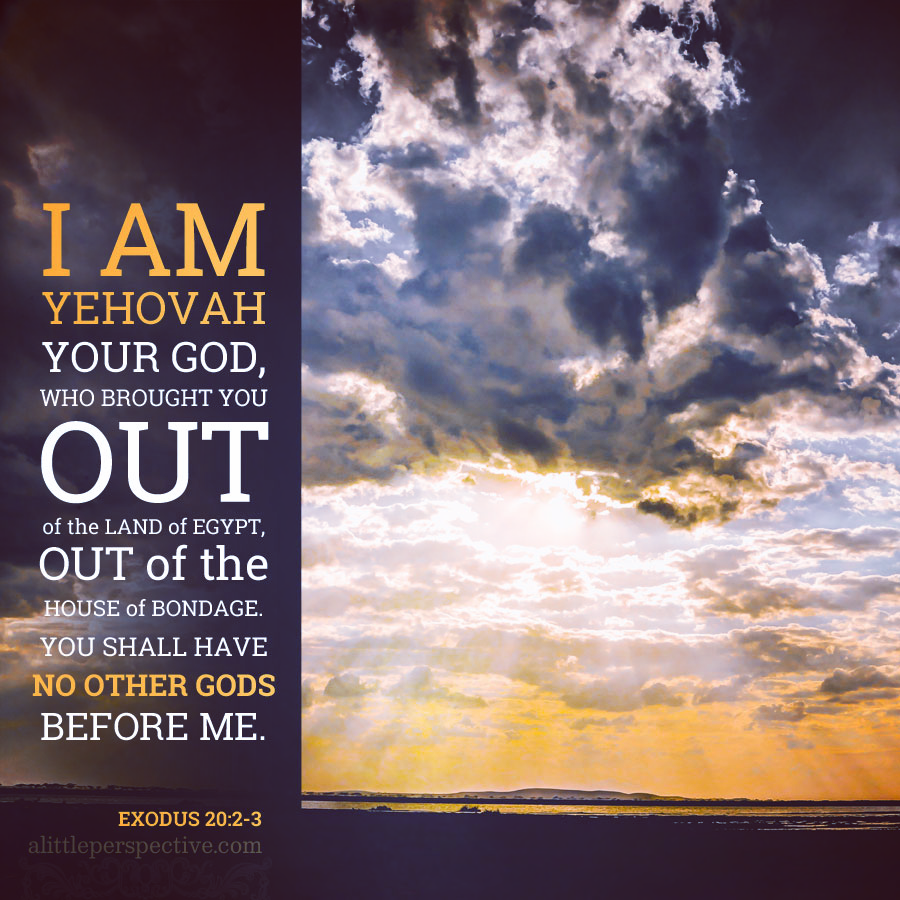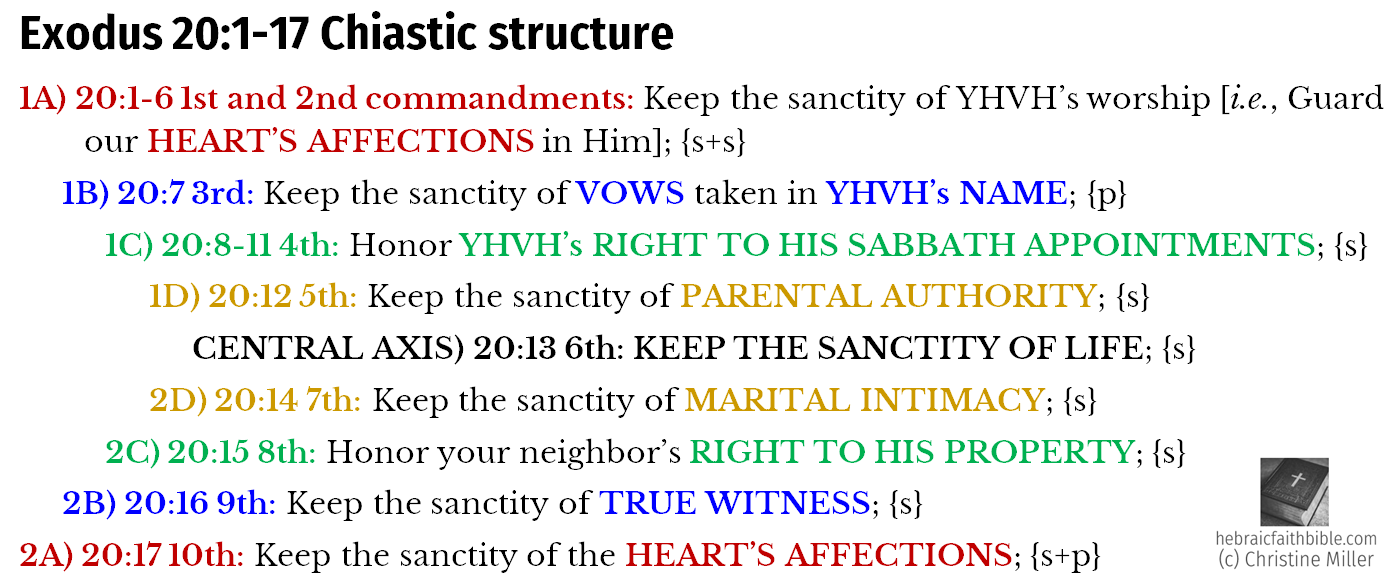Read Exodus 20 at Bible Gateway.
The Hebrew paragraphs for this chapter:
20:1 {s} And God spoke all these words, saying
20:2-6 {s} Israel shall have no gods before YHVH
20:7 {p} Israel shall not take the name of YHVH in vain
20:8-11 {s} Remember the Sabbath day to set it apart
20:12 {s} Honor your father and mother
20:13 {s} You shall not murder
20:14 {s} You shall not commit adultery
20:15 {s} You shall not steal
20:16 {s} You shall not bear false witness
20:17a {s} You shall not covet your neighbor’s house
20:17b {p} You shall not covet anything that is your neighbor’s
20:18-21 {s} The fear of God prevents us from sinning
20:22-26 {p} Explanation of the first three commandments
The Ten Commandments Chapter… (I can already hear the groaning). God isn’t sternly handing out a list of “Thou shalt nots” like cosmic traffic tickets. In Hebrew they’re called the Aseret HaDevarim—the Ten Words. And every single one can be restated as what we protect, because it is the greatest treasure in the universe.
1-2 Keep the sanctity of YHVH’s worship
3 Keep the sanctity of YHVH’s name
4 Keep the sanctity of YHVH’s Sabbath
5 Keep the sanctity of parental authority
6 Keep the sanctity of life
7 Keep the sanctity of marital intimacy
8 Keep the sanctity of private property
9 Keep the sanctity of truth
10 Keep the sanctity of the heart’s affections
Now watch what happens when we lay them out in the order God spoke them.
Why This Matters: Everything flows out from the beating heart of life which is the gift of the Life-Giver; and is bounded by what we cherish in our hearts. Commandments 1 through 3 teach us how to love God. Commandments 4-10 teach us how to love ourselves and others. Ten Words, but one verb: Love.
If there are questions, these are good resources:
The Law of Love – Christine Miller
The Ten Commandments Index of Studies – Christine Miller


















Leave a Reply